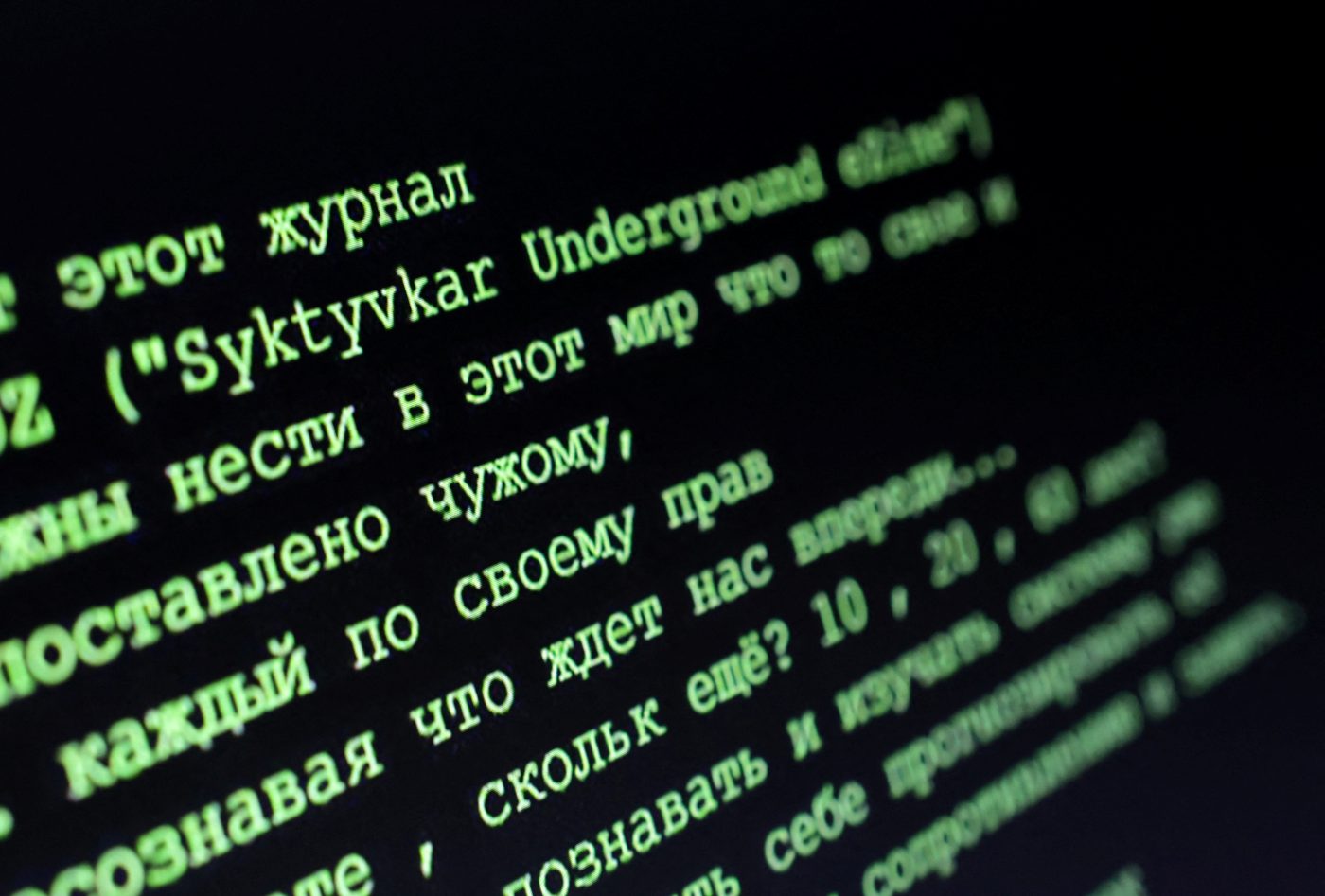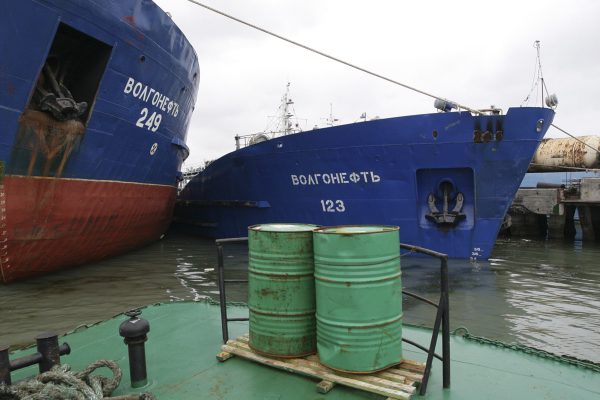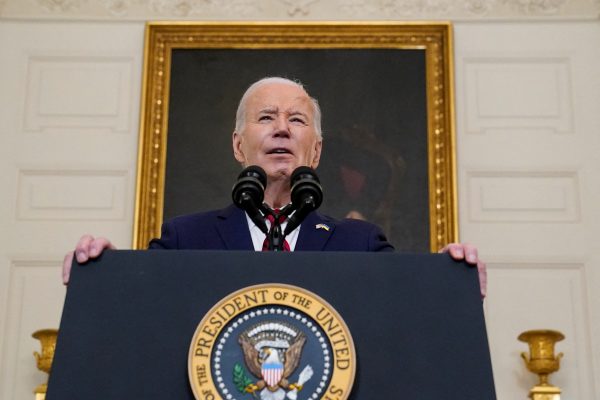Putin’s regime is still not Stalin’s totalitarian state. Everyone retains the right to make choices.
That is especially true for Russia’s tech giants, which have emerged over the last 30 years despite the rising authoritarianism and which competed, successfully, with their Western counterparts.
Yandex, a Russian analog of Google, always had a controversial reputation. Its co-founder Arkady Volozh built a great corporation from scratch and while he didn’t use government funds, he often complied with the Kremlin’s requirements.
Thus when pressured, he agreed to alter the Yandex search engine, excluding independent media from news search results. The European Union (EU) said in June 2022 that the company was responsible for “de-ranking and removing content critical of the Kremlin, such as Russia’s war of aggression against Ukraine.” Volozh met Putin on many occasions, but never challenged him.
At the same time, Yandex has always been a company where young professionals could freely express their views even if they were at odds with the Kremlin. Hundreds of company employees went to anti-Putin rallies and were detained: but the company never acted against them.
When the war started, Yandex let its programmers, who had fled the country, work remotely from abroad. It was clear that Putin was not going to tolerate such behavior and Volozh knew this. He resigned as Yandex CEO in June 2022, shortly after he was targeted by the EU sanctions referred to above. That didn’t help. Yandex was forced to sell off its news and blogging services to the social media holding VK, which is under the Kremlin’s control. (Yandex says the decision to sell was a “strategic decision” and was not forced.)
Volozh lost a lot in terms of influence and assets, but at least he was not going to support the war in Ukraine: on August 10, he made an openly anti-war statement. “Russia’s invasion of Ukraine is barbaric, and I am categorically against it,” he stated. “Although I moved to Israel in 2014, I have to take my share of responsibility for the country’s actions.” Yandex did not immediately respond to a question on whether it acknowledged corporate responsibility for the war.
Kaspersky Lab, a globally acclaimed Russian cyber security company (just before the war it became the world brand of the year in the anti-virus soft category) faced an even more difficult challenge when the all-out invasion started.
Kaspersky Lab enjoyed a truly global presence, respected by cyber communities in Europe, the US, and everywhere in the world. And yet cyber companies are by default closely tied with security services. Kaspersky Lab is no exception – the company cooperated with the Russian counterintelligence agency, the FSB and Yevgeny Kaspersky himself had graduated from the KGB school. He also had a long record of supporting, in person, Russian government initiatives seeking to bring the Internet under state control.
This was already a serious problem for the company in 2016, after Russia’s interference in the US election – Kaspersky Lab lost much of its US market and many government clients in Western Europe. When the war started, it became much worse: Kaspersky experienced first-hand that in this kind of business, it’s very difficult to sit on the fence — one needs to choose a side.
Kaspersky chose to stay in Russia and that decision has had its benefits: this summer, the firm increased its share on the cyber security solutions market to 94%. It became, effectively, a monopoly provider.
Kaspersky himself is trying to pretend he is not taking sides in this war or there is no war at all: his personal blog is full of happy snaps taken on his numerous foreign trips: this summer to Southern China and Kenya.
Unlike Volozh, Kaspersky had made no public comment about the war. He didn’t support it, nor did he condemn it. Nor has Kaspersky been caught providing direct help to the Russian army fighting in Ukraine.
What does that make Kaspersky and the like in the context of the aggressive war fought by the Russian state? Is it even possible to stay out of the war?
The global human rights community worked hard to define ethical rules of what is acceptable and what is not to those companies working for the military-industrial complex and those providing surveillance technologies to repressive regimes.
But there are no ethical rules for IT and cyber companies which continue to operate in the country with a repressive and aggressive regime.
Kaspersky Lab is a good example of what might happen when the rules are non-existent. The company’s current focus is providing industrial cyber security solutions, including to government agencies. Roman Loginov, Kaspersky Lab’s head of government clients, was proud to admit in an August interview that since the war started (which he calls “the February events of the last year”) the company participated in several big investigations to help deal with cyber-attacks on government organizations.
While he was very careful not to call the “intruders” the Ukrainians, it is clear that the company directly confronted Ukrainian cyber troops.
There is also a second front of confrontation with the Ukrainian military. Even before the invasion, Kaspersky Lab was developing anti-drone products: there is a fast-growing anti-drone department at the company. Now, with Ukrainian drones attacking Russian cities, including Moscow, on an almost daily basis, it has a political dimension.
The Russian authorities understand this. In March, Andrey Kartapolov, head of the Duma Defense Committee, said that Russian corporations can independently purchase commercially available anti-drone technology at their facilities to help the government protect crucial national infrastructure. Kaspersky Labs understands this: Loginov sounded effusive when discussing the business opportunities.
Like it or not, Kaspersky Lab is therefore on a collision course with Ukraine’s drone operators, who will be members of either the military or the intelligence services.
All of which makes the position of companies like Kaspersky even more complicated, ethically speaking. Although the company has not been caught providing solutions for the war or occupation, it is now a participant in the conflict.
Putin is not Stalin, and that makes things for companies like Yandex or Kaspersky Lab, much more complicated. If it were Stalin, it would be much simpler and more direct – the economy would be militarized, and the companies would have no choice, and therefore no responsibility.
In Putin’s Russia, companies still have some room for maneuver. That means they may one day be held responsible for what they chose to do.
This article was amended on August 25 to include a company comment from Yandex, details of the EU’s findings against the company, and a request for further comment.
Irina Borogan and Andrei Soldatov are Nonresident Senior Fellows with the Center for European Policy Analysis (CEPA.) They are Russian investigative journalists, and co-founders of Agentura.ru, a watchdog of Russian secret service activities.
Europe’s Edge is CEPA’s online journal covering critical topics on the foreign policy docket across Europe and North America. All opinions are those of the author and do not necessarily represent the position or views of the institutions they represent or the Center for European Policy Analysis.





